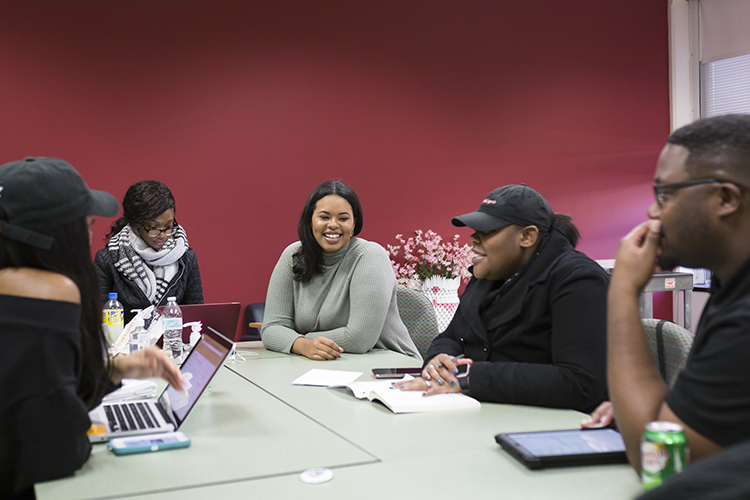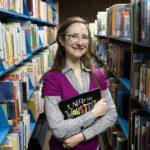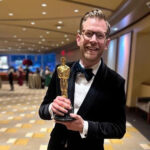Miela Fetaw was born in Italy to immigrants from Eritrea, a small country in East Africa just north of Ethiopia. She came to the U.S. when she was 6 years old, but her family’s experiences have inspired Fetaw’s interest in writing about immigrants and other underrepresented communities.
The University of Wisconsin-Milwaukee senior, a dual journalism and global studies major, took a big step toward her professional goals this year. She was one of five students nationally selected for Pro Publica’s 2017 Emerging Reporters program. Pro Publica is an independent, nonprofit investigative reporting organization that has won several Pulitzer Prizes. The organization created the Emerging Reporters program three years ago to provide mentoring and financial support to young journalists of color.
“Being an immigrant and the product of immigrants, I’m really passionate about immigrant and refugee rights,” she said, adding she hopes to focus on stories that shine a light on war, power and the impact of being displaced.
Fetaw has already built a strong foundation for a journalism career.
She worked as a digital investigative intern at WTMJ-TV last summer, taking part in a major investigative report about the epidemic of stolen cars. She also traveled to Japan in the spring of 2017 as a Roy H. Howard National Reporting Fellow, and was part of a team that won a national student journalism award, the 2016 Mark of Excellence, from the Society of Professional Journalists. For ProPublica, she is working with a mentor on a story about safe spaces for black people in Milwaukee.
She will finish most of her courses by December and will walk across the stage then, but will receive her diploma in spring after she completes one science course online. In the spring semester, she will be traveling in Europe to conduct interviews on the cultural landscape of Eritrean refugees throughout Europe.
She credits her parents with inspiring her journalism career. Her mother had worked as a television reporter in Addis Ababa, Ethiopia, and had also studied literature at school.
“I’ve always been fascinated with words, and journalism just felt like a good place to start,” Fetaw said. She had hoped to enter a journalism program at New York University or Columbia University. However, with two younger sisters – one at the University of Pennsylvania and one at Rufus King International High School – UWM turned out to a more realistic, affordable choice for her family, she said.
At the university, she’s been active with a number of organizations, serving as president of Kappa Eta Chapter of Delta Sigma Theta sorority; president of the African Student Association and vice president of the National Pan-Hellenic Council.
She has found several good mentors at UWM. “One of my professors, Jessica McBride, has been my biggest advocate. She taught me early on in journalism class to never take no for an answer.”
That skill served her well in seeking out the Pro Publica opportunity. “I applied last year and was denied,” but after redoing her resume and developing stronger essays, she was able to get the award this year. “I’ve learned the blessing in rejection. Now I see it as an opportunity to grow. I’m glad I reapplied.”
In addition to speaking and writing English, she knows Italian and Tigrinya, the language of her family’s home in Eritrea. “I’m learning Arabic, which is similar to my home language, and can communicate for about three minutes,” she said with a smile.
Graduate school in journalism is her planned next step, with the goal of becoming a foreign correspondent or investigative reporter. Her experiences in just explaining where her family is from opened her eyes to the need for strong international reporting.
“It surprised me when I would tell people where I was from and they had no idea where Eritrea was located,” Fetaw said.
She hopes, she said, that her language skills and global studies background will help her in her future career. “I’ve been able to connect with a variety of people because of my background. That makes interviewing them and storytelling more enriching.”







